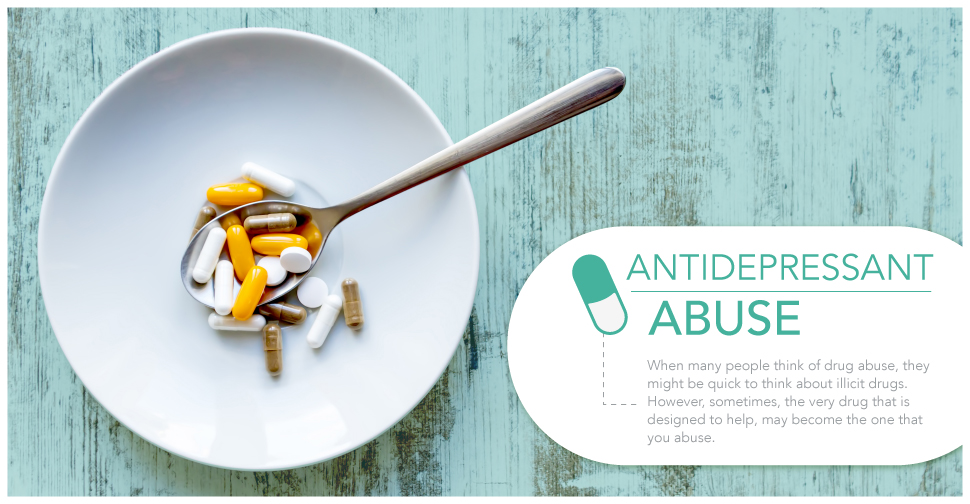
When many people think of drug abuse, they might be quick to think about illicit drugs. However, sometimes, the very drug that is designed to help may become the one that is abused.
Within the United States, prescription drug abuse has reached frightening numbers. Though not the class of medications that are most abused of all, antidepressant misuse and abuse is a problem within many people’s lives.
Why Does This Happen?
Abuse of antidepressant might happen one of three ways: first, a person may seek out an antidepressant in the hopes of experiencing a pleasurable feeling, secondly, a person may use them to self-medicate, and lastly, a person may misuse a prescription in a manner that becomes abuse.
Experts theorize that this non-medical use and abuse stems from several reasons, including the surge in prescriptions and resultant availability, the option to purchase drugs without prescriptions over the internet, and the false perception that illicit prescription drug use is not as dangerous as using illicit drugs.
Types Of Antidepressants
When a person is depressed, it is due in large part to chemical imbalances in their brain. Certain neurotransmitters, including serotonin, norepinephrine, and dopamine may be imbalanced, and because of this, certain antidepressants may be useful in helping your brain to regain and maintain this equilibrium.
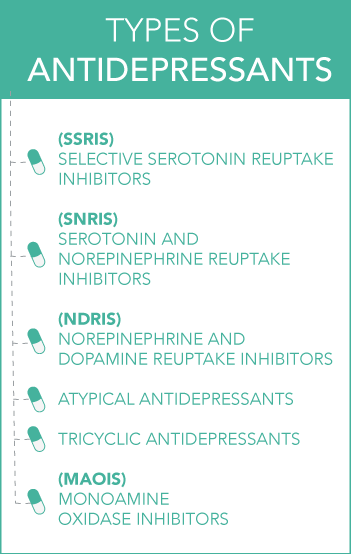 As each person and their circumstances, level of depression, and physiology are different, there are various medications within the antidepressant class. They include:
As each person and their circumstances, level of depression, and physiology are different, there are various medications within the antidepressant class. They include:
- Selective serotonin reuptake inhibitors (SSRIs)
- Serotonin and norepinephrine reuptake inhibitors (SNRIs)
- Norepinephrine and dopamine reuptake inhibitors (NDRIs)
- Atypical antidepressants
- Tricyclic antidepressants
- Monoamine oxidase inhibitors (MAOIs)
Not every drug is right for every person. Some drugs have more severe side effects and complications than others. This why antidepressant abuse can be so worrisome—without the knowledge and direction of a physician or psychiatrist, you may be using something that interacts with other prescribed drugs (not to mention illicit drugs), or it simply may not be the right medication for your needs. It is worth noting that a National Institutes of Health publication says that MAOIs are the most frequently purported antidepressant to be misused.
How Are These Drugs Abused?
Depending on the drug, antidepressants may be taken whole, in a greater quantity or frequency than intended, snorted, injected, and/or taken in conjunction with another drug, to enhance the effects of either or both drugs.
One example is bupropion, marketed under the name Wellbutrin (also as Zyban as a smoking cessation drug). Abuse of this drug has risen, with individuals seeking a high or euphoria compared to amphetamines or crack cocaine. When abused, this drug is snorted or injected—both of which are dangerous since the drug was created to be digested and contains substances that are only supposed to be processed this way—not put directly into the bloodstream.
What To Look For
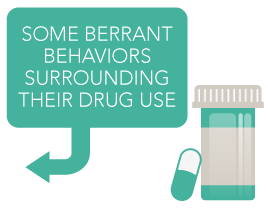 Though it is of yet controversial whether or not a person can be addicted to antidepressants, and in turn experience a tolerance or compulsive desire to use, a person may develop aberrant behaviors surrounding their drug use. If you see any of the following, it may point to this problem:
Though it is of yet controversial whether or not a person can be addicted to antidepressants, and in turn experience a tolerance or compulsive desire to use, a person may develop aberrant behaviors surrounding their drug use. If you see any of the following, it may point to this problem:
- Asking people for more of their prescribed drug or for another type of antidepressant
- Stealing pills or buying them off the street
- Going to a different doctor in hopes of receiving more of their prescribed drug or a different one (doctor shopping)
- Taking the drug in conjunction with other medications, illicit drugs, or alcohol.
- Using the drug in a way other than intended (crushing it, snorting it, or injecting it).
- Claiming that they’ve lost the rest of their pills
- Taking the drug more frequently and/or in larger quantities
A person may also exhibit physical, mental, or emotional changes due to their drug abuse. These include:
- Drowsiness
- Muscle twitches
- Changes to vision
- Dry mouth
- Agitation and nervousness
- Gastrointestinal difficulties
- Cognitive impairment, including confusion or an inability to concentrate
- Headache
- Cardiac or respiratory changes
- Mood changes
- Delirium or hallucinations
- Seizure
- Psychotic behavior
- Worsening depression, may be accompanied by suicidal thoughts or actions
- Serotonin syndrome, due to increased levels of serotonin
If you witness any of these behaviors or changes in a capacity that is troubling, reach out for help today.
The Risks of Antidepressant Abuse
Abusing these drugs alone can be harmful for your health. If you choose to use these drugs with other substances, the risk can increase by causing drug interactions, complications, and toxicity.
One combination that is prevalent is antidepressants paired with alcohol. This combo can have negative side effects. Alcohol is a depressant and can actually increase a person’s struggles with depression.
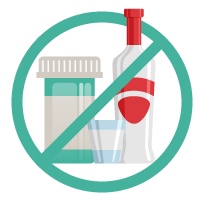 Though research is mixed, some findings suggest that SSRIs may actually be linked to increased alcohol consumption. If this is true, it leads us to consider that if a person is taking these types of medications without medical supervision, or if they are taking amounts greater than they should be, this risk could be increased.
Though research is mixed, some findings suggest that SSRIs may actually be linked to increased alcohol consumption. If this is true, it leads us to consider that if a person is taking these types of medications without medical supervision, or if they are taking amounts greater than they should be, this risk could be increased.
According to Mayo Clinic, children, teenagers, and those under 25 may experience a greater risk of suicide when using antidepressants, even as prescribed. This risk may increase with illicit use, especially if a person is using other illicit drugs at the time that further imbalance their chemistry and mood.
When a person uses an antidepressant more often and in larger amounts, they can cause toxicity to their body. Medscape tells us that severe over use of tricyclic antidepressants can “progress to life-threatening cardiovascular and neurologic toxicity within an hour. Toxicity typically presents as symptoms affecting the autonomic nervous system, central nervous system, and the heart.”
The Journal of the American Medical Association published findings on pharmaceutical overdose deaths, citing that in 2010, 57.7 percent of drug overdose deaths in the U.S. were due to pharmaceuticals, and of this number, antidepressants ranked number three behind opioids and benzodiazepines at 17.6 percent of the deaths.
Overdoses aren’t the only way people can die under this abuse. Going back to Wellbutrin abuse via injection, this method of delivery has “a necrotizing, or tissue-destroying effect,” and causes infections, according to CTV news. This report noted that a man missed his jugular and “His brain stem slowly necrotized and the man was eventually taken off life support and died.” Though this might be the most severe of cases, it is worth considering as any time you abuse a drug, you are endangering your health, and in some cases, your life.
The Impact Of A Co-Occurring Condition
Many times, a person is seeking to contend with other concerns and uses a drug in the hopes of alleviating or treating these conditions. These co-occurring conditions can be mental health disorders that plague a person alongside their struggles with substance abuse—depression is one such concern.
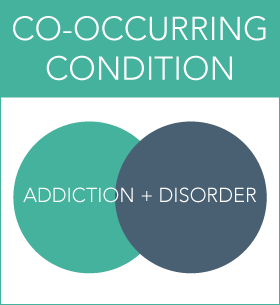
It could be that a person is afraid to seek professional help, or if they have, perhaps the prescribed drug is not working in the way that it should, or maybe it’s not the best fit for the person. Instead of seeking medical direction, they try to deal with these things on their own, which can lead to abuse and improper care and management of the underlying depression. This allows it to get even further out of control, which may then cause a person to further abuse antidepressants.
Treating These Conditions
The difficulty is that a person may be abusing an antidepressant that they need. In these instances, professional guidance can be key. It is important to remember when treating depression, that the use of antidepressants is only one facet of a thorough approach.
A good rehabilitation program can direct you towards combating your depression through alternative means. This may involve the aid of a new medication, therapy, or a combination of both. Depending on the level of your depression, a good behavioral approach may be enough to help you overcome this state.
Some research illustrates that cognitive behavioral psychotherapy alone may be sufficient for mild depression, and for some people, moderate depression. In the majority of cases, major depression warrants the use of medication alongside of therapy. Remember, proper diagnosis and treatment protocol should only be made by a trained medical professional.
In addition to these things, a good treatment program may offer alternative methods like yoga and massage, while always helping to guide you towards developing healthy thought patterns and behaviors in relation to both your depression and substance abuse. This is especially helpful for those that need to learn how to overcome their abuse so that they continue taking medication.
Regain Your Balance
Drug abuse can make for a difficult road to navigate. It can be especially intimidating to face when you’re struggling with a co-occurring condition.  Regardless of the form it takes, it is not something you should face alone. Our staff at DrugRehab.org understands the ways that these things can change your life and the questions that can surround these struggles. Contact us so that we can share our knowledge with you and get you started towards wellness.
Regardless of the form it takes, it is not something you should face alone. Our staff at DrugRehab.org understands the ways that these things can change your life and the questions that can surround these struggles. Contact us so that we can share our knowledge with you and get you started towards wellness.
Sources
Mayo Clinic — Depression (major depressive disorder)
Institutes of Health — Abuse and misuse of antidepressants
JAMA Network — Pharmaceutical Overdose Deaths, United States, 2010
CTV News —Doctors warn of potentially fatal abuse of Wellbutrin antidepressant
Medscape — Antidepressant Toxicity
